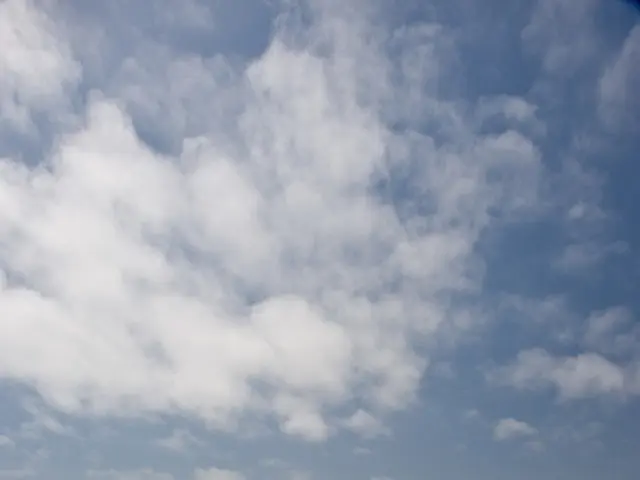Investigating potential life forms on the icy satellite
Title: Astrobiologists Explore Potential Signs of Life on Enceladus, Saturn's Icy Moon
Enceladus, one of Saturn's moons, may hold the key to discovering extraterrestrial life. Despite its inhospitable exterior—covered in ice and enduring temperatures as low as minus 200 degrees—an ocean of liquid water exists beneath its surface, making it one of the most promising locations in the solar system to search for alien life.
Astrobiologist Nozair Khawaja, who leads a team at the Free University, explains that "where there's water, there's the possibility of life." Upcoming experiments will investigate which substances can form under conditions similar to those on Enceladus.
Previously, researchers believed that the region beyond Mars was unfit for life due to severe cold temperatures and insufficient sunlight. However, the discovery of liquid water on Enceladus has challenged this assumption. In 2005, specialized instruments detected water jets and geysers at the moon's south pole, indicating the presence of a subterranean ocean. Large cracks on the moon launch water vapor and ice particles hundreds of kilometers into space.
In captured ice particles, both small and large, complex organic molecules have been found. Astrobiologist Khawaja notes that "for the first time, we've found very large organic molecules in an extraterrestrial ocean." This finding could suggest biological activity on Enceladus. However, these molecules could also have formed through hydrothermal reactions.
Minimizing the potential for life-like humanoid creatures, Khawaja states, "We're not looking for something that's similar to us and has two eyes, a nose, and arms." Instead, researchers are focused on finding simple life forms like bacteria.
While the discovery of large organic molecules in Enceladus's ocean is suggestive of a habitable environment and a crucial step toward prebiotic chemistry, they are not definitive proof of life. The presence of complex organic molecules is more consistent with advanced chemical reactions occurring at the rock-water interface or during plume ejection, rather than exclusive signatures of life.
Continued exploration and analysis of Enceladus may yield groundbreaking discoveries about the possibility of extraterrestrial life and our place within the cosmos. "The discovery of extraterrestrial microbial life," says Khawaja, "would fuel hope that traces of life might also be spread throughout the universe and that conditions could exist where human-like life is possible or could be established in the future."
The European Union has a number of initiatives in the field of space-and-astronomy, including funding for research on Enceladus, as the discovery of its subterranean ocean and complex organic molecules could provide insights into environmental-science and the potential for life-forms beyond Earth. Science and health-and-wellness sectors are also involved in this quest, with astrobiologists like Nozair Khawaja investigating the possibility of simple life forms like bacteria in the ocean of this Saturn's moon.








